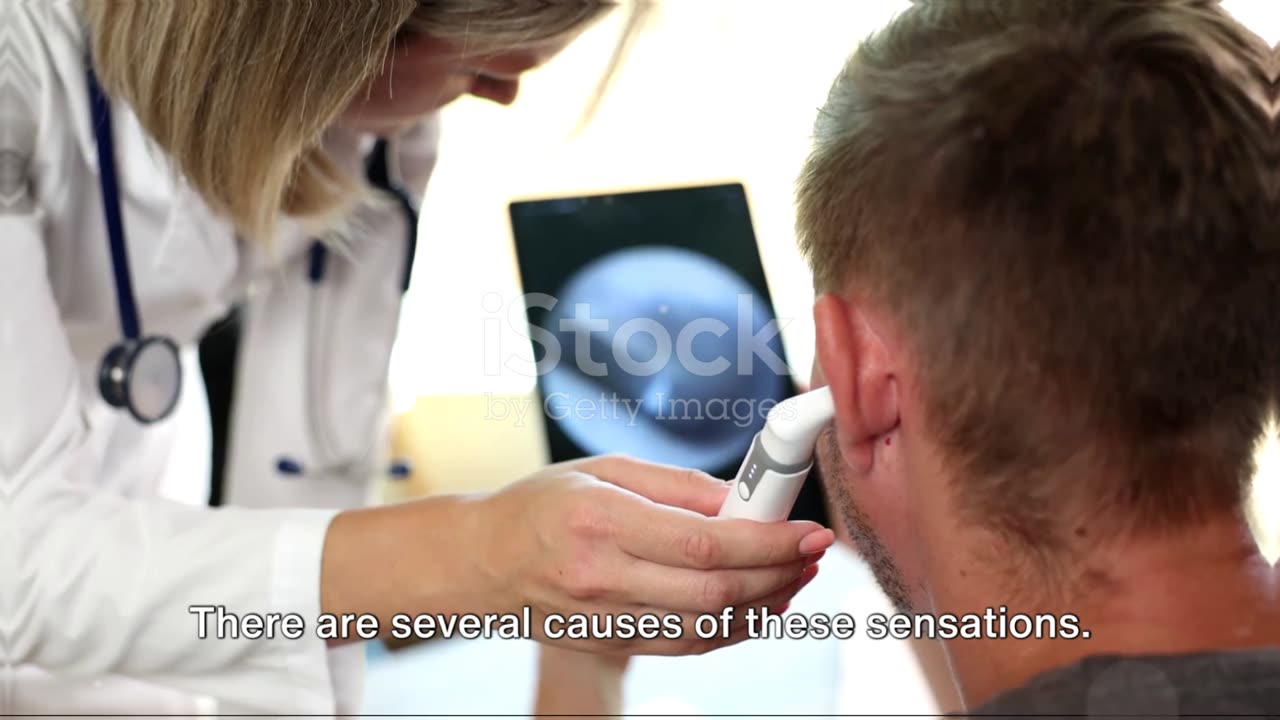Premium Only Content

Dizzying Facts Understanding Dizziness
Introduction;
.Dizziness and vertigo rank among the most frequent symptoms prompting patients to seek medical attention, comparable to the prevalence of back pain and headaches. For this population, falling can directly result from dizziness, and the risk is heightened in elderly individuals with additional neurological impairments and chronic health conditions. These terms are often used interchangeably, but they refer to distinct experiences.
Dizziness can encompass various sensations, including lightheadedness, unsteadiness, and a feeling of floating. Vertigo, on the other hand, is characterized by a false sense of spinning or movement, as if the surrounding environment is in motion.
Causes of Dizziness and Vertigo:
Inner Ear Disorders: Benign Paroxysmal Positional Vertigo (BPPV), Meniere's disease, vestibular neuritis, and labyrinthitis.
Vestibular Migraines: Migraine headaches that manifest with vertigo .
Medication Side Effects: Certain medications can disrupt the inner ear's balance mechanisms.
Low Blood Pressure: Sudden drops in blood pressure .
Anxiety and Panic Disorders: Psychological factors can contribute to these symptoms.
Cardiovascular Issues: Conditions like arrhythmias and heart disease can cause inadequate blood flow to the brain.
Neurological Conditions: Multiple sclerosis, stroke, brainstem and cerebeller vascular lesions and other neurological disorders can affect balance and perception.
Low blood Sugar : Hypoglycemia can also cause dizziness.
Signs and Symptoms ;
The signs and symptoms of dizziness and vertigo can vary depending on the underlying cause. Some of the most common signs and symptoms include:
Lightheadedness
motion intolerance
Spinning sensation
Imbalance
Nausea and vomiting
Sweating
Ringing in the ears
Hearing loss
Difficulty concentrating
Fatigue
Time Course of Vertigo ;
The time course of vertigo is important:
Episodic vertigo lasting for several days, accompanied by nausea and the absence of other ear or central nervous system symptoms, is typically attributed to vestibular neuritis, particularly following a viral illness.
Episodic vertigo lasting for seconds, coupled with head or body position changes, is likely due to benign paroxysmal positional vertigo (BPPV).
Vertigo that lasts for hours is probably caused by Meniere disease (if associated with hydropic ear symptoms)
Sudden-onset vertigo lasting for minutes may be attributed to migraine, brain-related issues, or vascular disease, particularly if there are cerebrovascular risk factors present.
Diagnosis ;
Medical History and Physical Examination:
Evaluating symptoms and ruling out other conditions.
Dix-Hallpike Maneuver:
The presence of positioning nystagmus is a characteristic observation in individuals diagnosed with benign paroxysmal positional vertigo (BPPV). It is elicited by moving the patient rapidly from the sitting position to the head-right-down and head-left-down positions while observing and recording resulting nystagmus and symptoms. Avoiding hyperextension of the neck is recommended and should be practiced to prevent potential issues.
Videonystagmography (VNG):
Evaluates eye movements to gauge the functioning of both the inner ear and the central nervous system.
MRI or CT Scan:
Imaging to identify structural abnormalities or neurological causes.
Electronystagmography (ENG):
Records eye movements to evaluate vestibular system integrity.
Caloric testing:
This test measures the response of your inner ear to warm and cold water.
Rotating Chair testing :
This test is particularly valuable for assessing the extent of central vestibular compensation and the remaining vestibular function, especially in instances of bilateral vestibular loss.
Management;
Epley Maneuver:
Treatment for BPPV involving specific head and body movements to reposition displaced particles in the inner ear.
Medications:
It is managed with vestibular suppressants, antiviral medication, and antiemetic medications. Steroids are useful in selected patients. Vestibular suppressants should be employed for a brief duration, typically a few days at most, as they can impede the natural compensatory mechanism of the brain for peripheral vertigo.
Vestibular Rehabilitation:
It is very useful in boosting central vestibular compensation.
Lifestyle Modifications:
Avoiding triggers like caffeine, alcohol, and stress.
Cognitive Behavioral Therapy:
Effective for managing anxiety-related dizziness.
Surgical Interventions:
In severe cases, surgery may be considered for certain conditions.
Physical therapy:
Physical therapy can be beneficial in enhancing balance and coordination.
Don't try it at home , must visit your healthcare professional if you feel any above mentioned sign and symptoms.
-
 15:36
15:36
Neil McCoy-Ward
2 hours ago🚨 Emergency Martial Law Declared, Special Forces Deployed...
12.7K5 -
 1:57:30
1:57:30
The Charlie Kirk Show
2 hours agoDemocrat Billionaires in Crisis + Fixing the Migrant Crisis | Blagojevich, O'Brien, Metaxas| 12.3.24
51.5K9 -
 1:01:07
1:01:07
The Dan Bongino Show
5 hours agoBiden’s Reign Of Destruction Isn’t Over Yet (Ep. 2381) - 12/03/2024
611K1.51K -
 1:59:02
1:59:02
Steven Crowder
5 hours ago🔴 COVID Chronicles: The Hidden Truths of the Pandemic Exposed
336K200 -
 LIVE
LIVE
SoundBoardLord
3 hours agoMulti-Gen Don Juan in Full Force!
160 watching -
 1:08:54
1:08:54
MTNTOUGH Fitness Lab
3 hours agoSheriff Mark Lamb Exposes America’s Border Crisis and Cartel Infiltration | MTNT POD#93
8.75K1 -
 8:52
8:52
Cooking with Gruel
12 hours agoToasted Brown Butter Cornbread
10.8K -
 1:01:44
1:01:44
The Rubin Report
3 hours agoJon Stewart Loses His Cool with Democrats for Saying This About Hunter Biden Pardon
49.7K60 -
 1:52:47
1:52:47
Benny Johnson
3 hours agoLibs BACKSTAB 'Senile' Biden | Trump Tells Trudeau USA Is Going To Make Canada '51st State!’ 🇨🇦
60.1K105 -
 1:13:08
1:13:08
Graham Allen
6 hours agoCOVID Conspiracies TRUE! Jill FORCED Joe To Pardon Hunter! + Trump wants Canada as The 51st State!
128K255